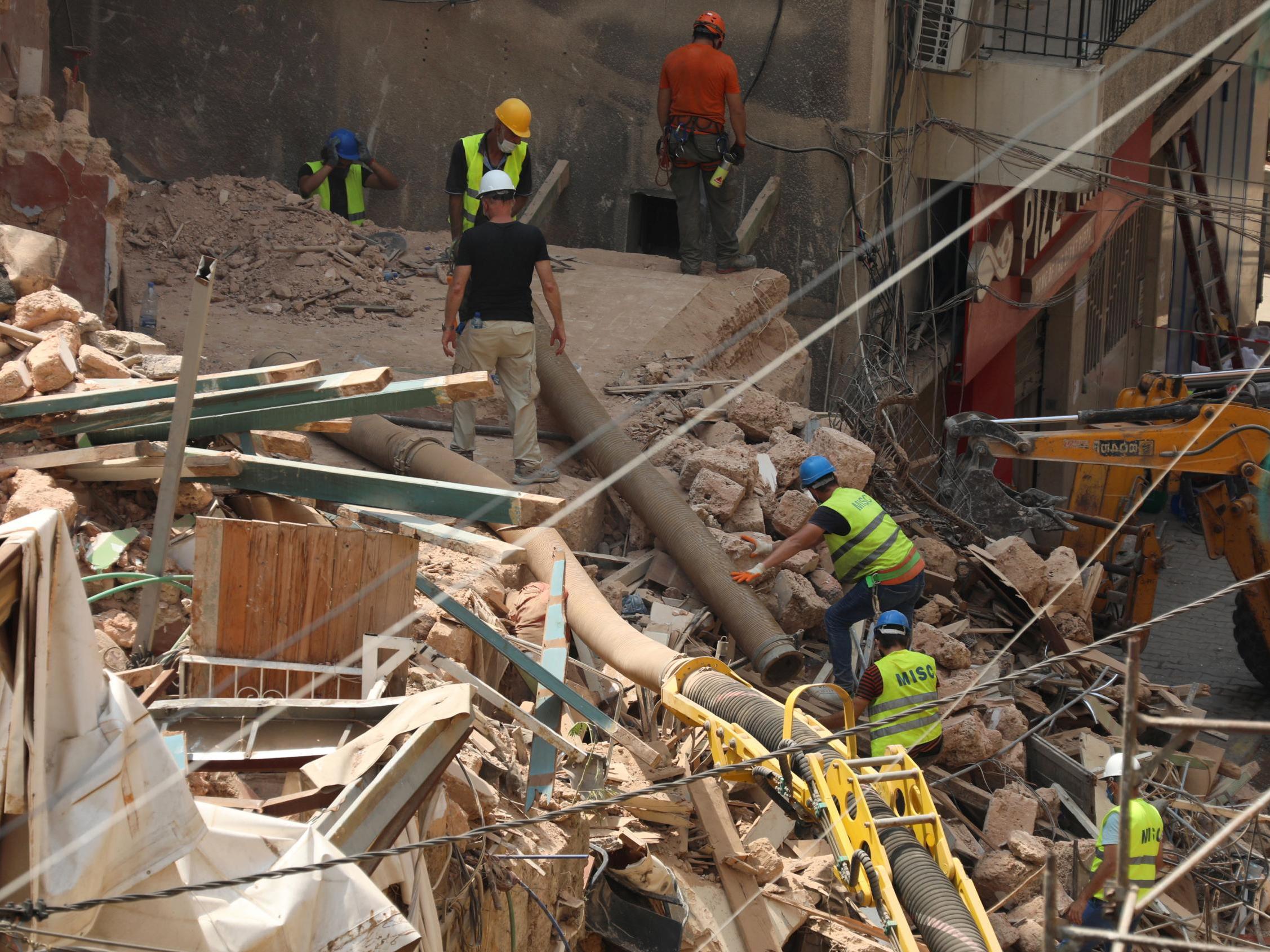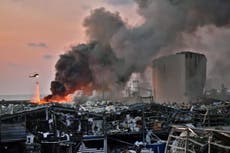Citizens are leading the response to the tragic Beirut blast. This speaks volumes about Lebanon
Ever since the explosion, residents have repeatedly picked up the pieces. Is it any wonder when the government is missing in action, asks Bel Trew


It was leaning towards midnight, on the kind of simmering evening when you cannot tell if you are breathing or your lungs are gently drowning in the humidity.
Thickening the air was rage.
The Lebanese military had just called off a search for an unlikely but still possible survivor of the massive blast which ripped through Beirut a month beforehand. A volunteer Chilean rescue team and Lebanese civil defence had been scrambling through a partially collapsed four storey building which was about to completely fall down.
They did not have a crane. And the army ordered the search to be halted and the teams to reconvene eight hours later.
Civilians – some of them activists or volunteers, some of them residents of the once popular street of restaurants and cafes – were not going to give up on the person who may or may not be alive under the rubble. Every second counted.
Sitting on the bonnets of broken cars they made calls. All of a sudden the street was filled with people who owned cranes. Or people who knew people who owned cranes.
A volunteer paid for one and brought it in. Amid the uproar the army decided to resume the search a few hours later.
After a three-day heart wrenching search that saw the nation and the world glued to their TV screens hoping for a miracle, nothing was found under the rubble.
But that narrow frame, when the search was temporarily called off and the citizens once again stepped in to problem solve, said so much about the state of Lebanon.
Ever since the blast, citizens have repeatedly picked up the pieces. Literally. Thousands armed with gloves, shovels and brooms got on with the job of clearing the debris. Volunteer groups delivered aid, housed people. In their own words, a member of one organisation, that sourced the crane, told me they have no government, the people are the government.
This has sparked many stories and headlines praising the Lebanese ability to survive no matter what, but what it misses is the fact that citizens should not have to survive this in the first place and the people are running out of the ability to pick up the pieces.
While it is important to hail the extraordinary resilience and ingenuity – heartwarming stories have to focus on the cost.
Yours,
Bel Trew
Middle East correspondent

Join our commenting forum
Join thought-provoking conversations, follow other Independent readers and see their replies
Comments